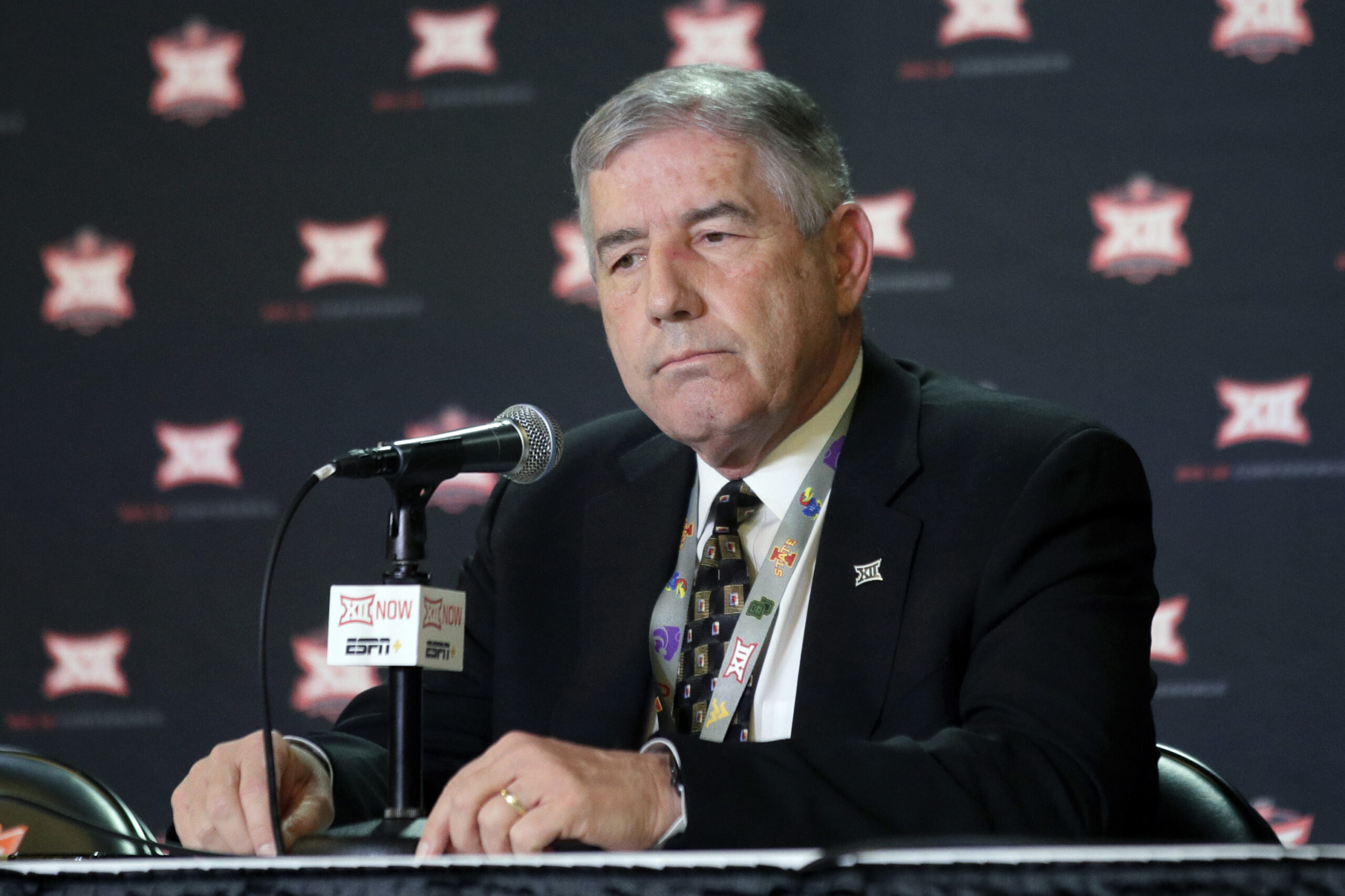MORGANTOWN, W.Va. — The first thing you need to know about the Big 12’s decision to move forward with fall sports in 2020 is that it was basically the league’s own choice.
Big 12 commissioner Bob Bowlsby simply didn’t tie his horses with the Big Ten and Pac-12, which have already postponed/canceled the 2020 football season and he didn’t come right out and create an allegiance with the SEC and ACC, which, presumably, are also looking to move ahead and play this fall.
“We’re not all similarly situated,” Bowlsby said Wednesday during an hour-long conference call.
In truth, that’s what was probably expected of the Big 12, to simply go one way or the other based on what the other Power 5 leagues decided.
Instead, the league made its own call, based on advice from medical experts.
Not only that, but the Big 12 also laid out what seems like a well thought-out plan in terms of moving forward under the COVID-19 pandemic.
Athletes in football, soccer and volleyball will be tested three times per week. Bowlsby hinted at a Sunday-Wednesday-Friday type of system for testing days.
Any athlete that tests positive will have to undergo an EKG, a blood test and a cardiac MRI before returning to action.
This is Power 5 stuff. These are answers at a time where there are so few, especially in the world of college athletics, which can not be played in a bubble.
This was not the action of a league straining to hold its place among the world of power brokers in college athletics.
Now, the ultimate question: Did the Big 12 make the right call?
Man, I just don’t know.
The league’s footprint is far from immune from the virus.
The state of Texas — where 40% of the league’s teams are located — just reported 9,803 new confirmed coronavirus cases Tuesday, an increase of 5,348 cases that was reported a day earlier.
That, apparently, was not enough to keep the Big 12 from moving forward.
“I can tell you our board listened to all the materials and came to their own conclusion,” Bowlsby said. “(College) presidents all talk to one another nationwide and I don’t know if they were influenced by a call with a president from the Pac-12 or on a call with a president from the ACC, but they came to their conclusion based upon listening to healthcare professionals. I think we can certainly look at the same data and come to different conclusions and I think that’s what happened.”
According to the football schedules released Wednesday by the conference, WVU will travel to Texas Tech on Oct. 24 and then again to Texas on Nov. 7. Baylor and TCU are scheduled to appear in Morgantown.
Bowlsby did add that the Big 12 would not hesitate to call off the season if health officials warranted the action.
“Nobody has told us that it’s poorly advised to go forward and do what we are doing,” Bowlsby said. “If we get to the place where our doctors and scientists say, ‘You guys have got two wheels off the tracks and you’re heading for a train wreck,’ then we will pivot that day.
“If it’s during camp, then it’s during camp. If it’s October, then it’s October. If it’s the week before our championship game, then that’s what it is. Making adjustments on the fly are going to be a part of this. Our medical professionals have said to move forward, move slowly and make small adjustments. They have told us it’s safe to move forward on that basis.”
There are other concerns, especially concerning the non-conference games slated the week before the start of Big 12 play.
In it’s release, the Big 12 said it expects all non-conference teams to adhere to Big 12 testing policies in order to play.
But how can the Big 12 or even WVU confirm that Eastern Kentucky — the Mountaineers’ opening opponent on Sept. 12 — is testing its players at that rate?
Short answer: It probably can’t.
For now, it’s game on for Big 12 football. Kudos to the league for supplying a plan of action.
Fingers are crossed that plan doesn’t lead to disaster.
TWEET @bigjax3211




